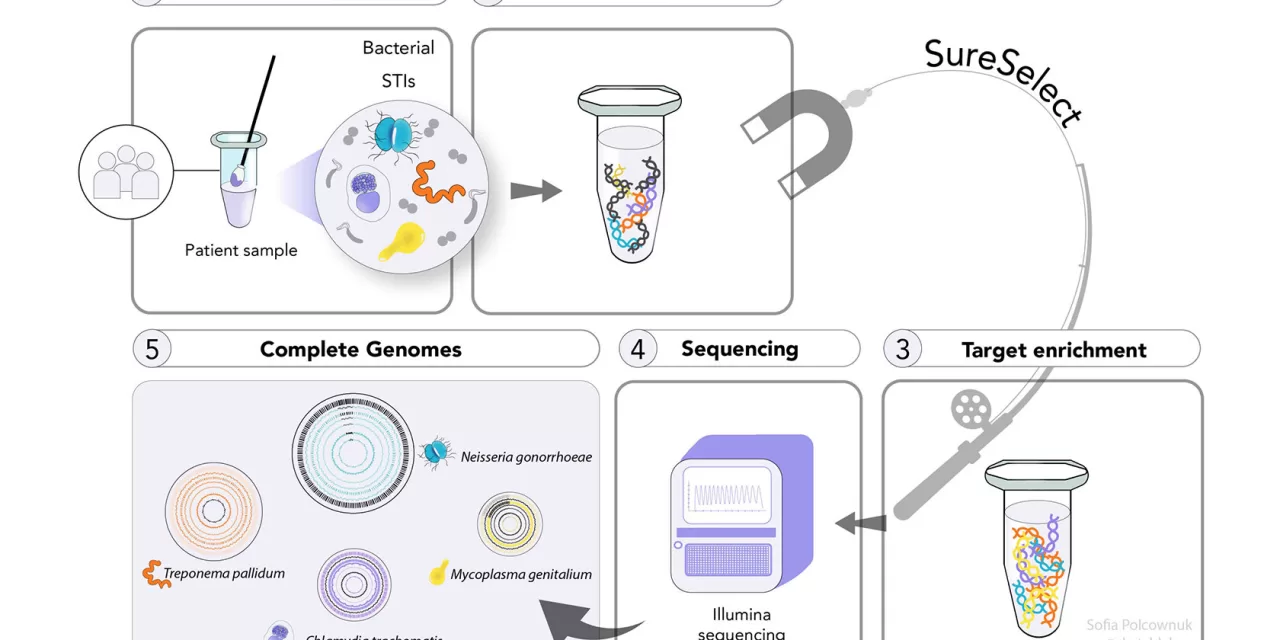February 17, 2025
A groundbreaking study utilizing advanced DNA techniques has uncovered a previously unknown lineage of Chlamydia trachomatis, shedding new light on sexually transmitted infections (STIs) and offering hope for improved diagnosis and treatment.
The Growing Challenge of STIs
According to the World Health Organization (WHO), hundreds of millions of bacterial STI cases occur worldwide annually. Many infections remain undiagnosed due to their often silent symptoms, contributing to further transmission and serious complications, including infertility and miscarriage.
Controlling bacterial STIs—such as chlamydia, gonorrhea, syphilis, and Mycoplasma genitalium—remains a public health priority, especially with rising infection rates and increasing antimicrobial resistance. Understanding these pathogens is critical to developing more effective diagnostic, treatment, and prevention strategies.
Challenges in Studying STI Pathogens
STI-causing bacteria are notoriously difficult to study. Many cannot be cultured in laboratories, and human DNA in clinical samples often overshadows bacterial genetic material, making genome sequencing complex. However, the genome holds crucial information about the bacteria, including their relatedness and antibiotic resistance patterns.
A team of scientists led by Helena Seth-Smith from the University of Zurich (UZH), Switzerland, in collaboration with the University of Buenos Aires, Argentina, has developed an innovative “target enrichment” technology. This technique uses molecular probes to selectively isolate bacterial DNA from clinical samples, allowing for high-resolution genome analysis.
“This method helps us understand how Chlamydia spreads and adapts,” said Helena Seth-Smith, co-head of microbial genomics and head of bioinformatics at the Institute of Medical Microbiology at UZH.
Discovery of a New Chlamydia Lineage
Using this cutting-edge technology, the team identified a previously unknown strain of Chlamydia trachomatis in Argentina. This new lineage, known as “ompA-genotype L4,” has distinct genetic characteristics compared to the three previously known strains. It was detected in rectal samples from men who have sex with men (MSM). The findings have been published in two recent studies in the journal Microbial Genomics.
Chlamydia is mainly transmitted through mucous membranes during unprotected sex. Patients infected with the newly discovered lineage L4 exhibited symptoms such as rectal inflammation, discomfort during bowel movements, and rectal discharge.
“Our findings open a new frontier in understanding STIs and highlight the evolving nature of these infections,” said Karina Büttner from UZH. “With these tools, we can better support public health efforts to control and prevent STIs.”
The Importance of Global Cooperation
Tracking STIs on a global scale is crucial, as sexually transmitted diseases disproportionately affect populations with limited access to healthcare and education. The researchers emphasize that the novel methods developed in this study, along with a deeper understanding of bacterial genetics, will help track antibiotic resistance trends, refine diagnostic tools, and improve targeted treatments.
As antimicrobial resistance becomes an increasing threat, such advancements provide valuable insights for developing future STI control strategies.
More Information:
- Karina Andrea Büttner et al, Chlamydia trachomatis genomes from rectal samples: description of a new clade comprising ompA-genotype L4 from Argentina, Microbial Genomics (2025). DOI: 10.1099/mgen.0.001350
- Karina Andrea Büttner et al, Evaluating methods for genome sequencing of Chlamydia trachomatis and other sexually transmitted bacteria directly from clinical swabs, Microbial Genomics (2025). DOI: 10.1099/mgen.0.001353
Disclaimer: This article is for informational purposes only and does not constitute medical advice. If you suspect an STI or require medical assistance, please consult a healthcare professional.











